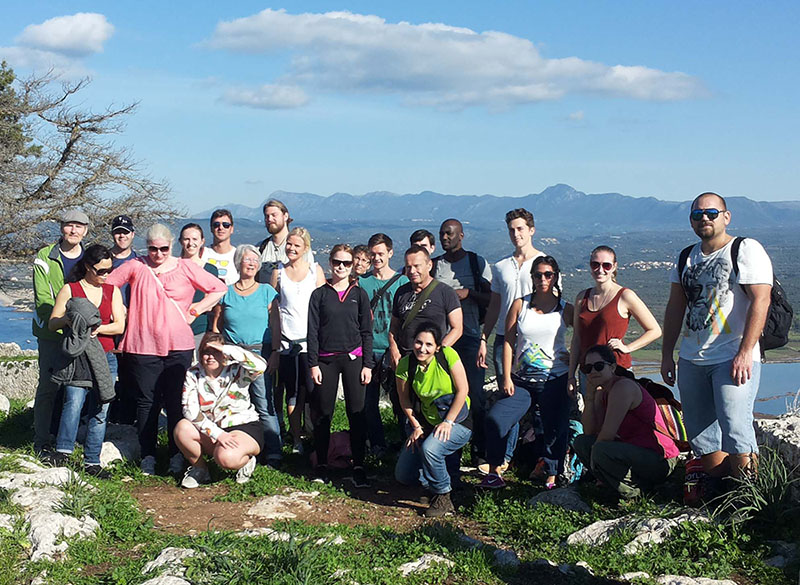Water resource in time and space: Focus Greece, 2016
2015-09-01
The Masters course Water resource in time and space: Focus Greece has been given every year since 2008 in co-operation with the Departments of Economic History at Uppsala University, Cultural Geography at Stockholm University, and Thematic Studies/Environmental Change at Linköping University. During the last couple of years the fieldwork, which is an important part of the course, has been conducted in the Navarino Environmental Observatory in the south-western part of the Peloponnese.
The course focuses on how a vital natural resource like water has affected the formation and organization of communities during different periods in Greece. It also investigates the ways in which humans through planning measures have sought to utilize the water resource based on the conditions created by the hydrological cycle, the geographical conditions, and historical traditions.
Course topics are the importance of water to settlement patterns, supply conditions, and the contact surfaces. The three themes are discussed diachronically from ancient Greece to present-day society. Today, the majority of the world’s population lives in the coastal zone, an area subjected to both an increased urbanization and the impact of expected climate change. Here, water management plays a vital role.
The course begins with a single meeting and a couple of weeks of preparation in Sweden. This is followed by fieldwork in Greece, and the course is concluded with a couple of weeks of report writing in Sweden. The fieldwork in Greece consists of on-site studies and field research into consequences of both excess of water and water shortages. Both problems occur in Greece, but Greece is also a good starting point for the study of the Mediterranean Sea as a transportation route and a source of supply, as both fishing and tourism are important economic resources there today. The environmental impact of tourism has come into focus during the last few years, as The Navarino Environmental Observatory where the fieldwork now takes place is located within the large Costa Navarino Dunes resort.

Students and teachers in the 2014 year’s course in the medieval fort of Palaea Navarino high above the Bay of Navarino.
Printed: 2026-03-04
From the web page: Swedish Institute at Athens
https://www.sia.gr/en/sx_PrintPage.php?tid=33